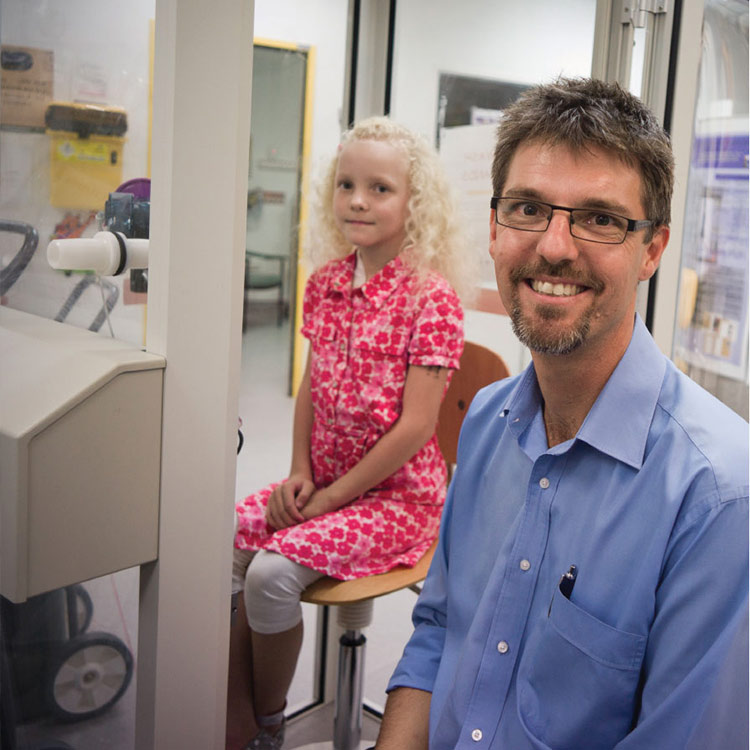Search
Showing results for "early life"
Research
Determinants of a dietary pattern linked with greater metabolic risk and its tracking during adolescenceAlthough growing evidence suggests that dietary patterns associated with noncommunicable disease in adulthood may develop early in life.

Life expectancy was in the 20s for children born with cystic fibrosis 30 years ago, today it is in the 30s. Professor Graham Hall is leading this research.
Research
The relationship between intrauterine foetal growth trajectories and blood pressure in young adultsPrevious studies have reported an association between low birthweight and elevated blood pressure (BP) in adulthood, but few have examined the relationship between foetal growth and adult BP.
Research
ApoB48-Lipoproteins Are Associated with Cardiometabolic Risk in AdolescentsAdolescents with polycystic ovary syndrome (PCOS) have increased incidence of cardiometabolic risk factors including dyslipidemia. Atherogenic apolipoprotein (apo) B-lipoprotein remnants are associated with increased cardiovascular disease (CVD) risk.
Research
A world of inflammation: the need for ecological solutions that co-benefit people, place and planetThe ecology of the early environment - including microbial diversity, nutrition, nature, social interactions and the totality of exposures in the wider "exposome" - have life-long implications for all aspects of health and resilience. In particular, the emergence of "microbiome science" provides new evidence for vital relationships between biodiversity and health at every level.
Research
Supporting Maternal and Child Mental Health Through Dietary Changes Focused on the Gut MicrobiotaGrowing evidence from preclinical studies, epidemiology, and randomized controlled trials supports a causal role for diet quality in mental disorder risk, and clinical psychiatric guidelines now place diet, along with other life-style behaviors, as foundational treatment targets for mood disorders.
Research
Nutritional Influences on Epigenetic Programming. Asthma, Allergy, and ObesityReliance on increasing use of dietary supplementation and fortification (eg, with folate) to compensate for increased consumption of processed foods is also...
Research
Lower Cord Blood IL-17 and IL-25, but Not Other Epithelial Cell-Derived Cytokines Are Associated with Atopic Dermatitis in InfancyThere is a growing need for early biomarkers that may predict the development of atopic dermatitis (AD). As alterations in skin barrier may be a primary event in disease pathogenesis, epithelial cell (EC) cytokines expression patterns may be a potential biomarker in early life to target allergy preventive strategies towards "at-risk" infants. The aim of this longitudinal investigation was to examine from birth over the course of infancy levels of the EC cytokines: thymic stromal lymphopoietin (TSLP), interleukin (IL)-33, IL-25, and IL-17 in infants at high-risk of AD due to maternal atopy.
Research
Fetal alcohol spectrum disorders screening tools: A systematic reviewScreening facilitates the early identification of fetal alcohol spectrum disorder (FASD) and prevalence estimation of FASD for timely prevention, diagnostic, and management planning.
Research
PrEggNut Study: protocol for a randomised controlled trial investigating the effect of a maternal diet rich in eggs and peanuts from <23 weeks' gestation during pregnancy to 4 months' lactation on infant IgE-mediated egg and peanut allergy outcomesClinical studies supported by immunological data indicate early life intervention strategies to be promising in reducing the growing global burden of food allergies. The events that predispose to food allergy, including the induction of allergen-specific immune responses, appear to be initiated early in development.
